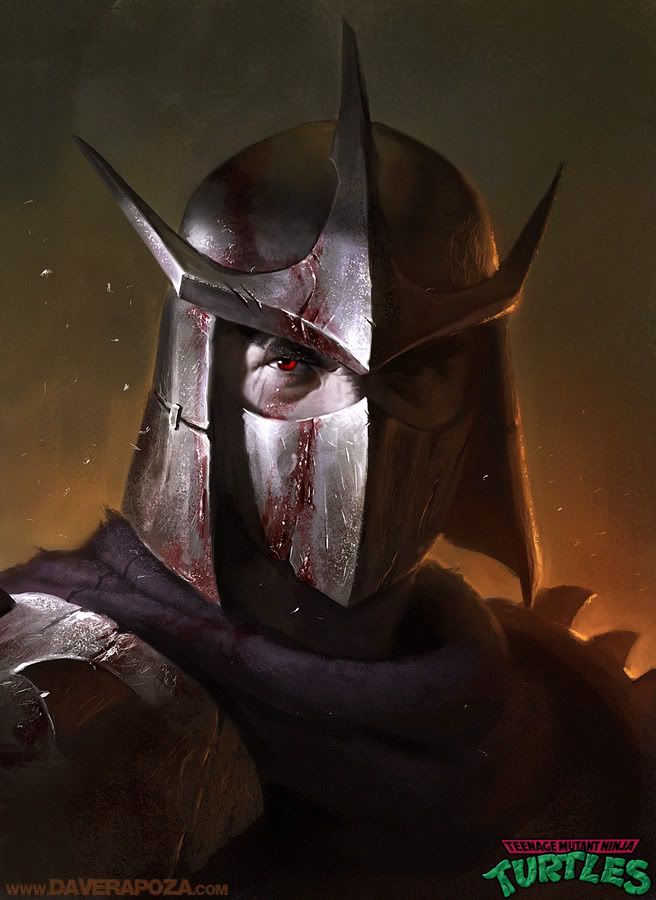Not to derail the topic ENTIRELY, but the more I've been thinking about this, the more I've been getting curious about at what point the race of an actor becomes important to the character that they're playing.
Obviously there's some point at which it becomes difficult to determine when it's applicable (not all costuming techniques have direct human translation, especially in the cases where it's used to make non-human characters), but digital enhancements and prosthetics seem to be getting us to a point where certain roles in largely CGI environments could be played without the audience knowing the race of the actor as well as they already do in animated shows, which made me start wondering if whitewashing is slowly becoming more about the actor who's playing them, or is it more about the adaptation of the character themselves into a realm that's attempting to connect with a "white audience"?
I'm bringing this up because it seems to me that Voice Acting is currently one of the most race and gender blind professions out there. Actors play different genders and races (or both) pretty frequently all across the spectrum. It really comes down to who manages to portray the
true idea of the character the most accurately, regardless of their actual sex/race which is pretty damn cool.
In actual film, this is seen very differently, but with technology moving steadily towards the use of digital prosthetics and performance capture, I'm wondering if we aren't getting to a point where that's going to be possible in certain film mediums. For the sake of looking at this, let's start by assuming that a single portrayal of Shredder stays in full armor to the same extent that the most we ever see of Shredder's actual body is limited to only his eyes, kinda like this:
How does this translate in how acceptable it is between William Fichtner voice acting the role of an animated version of this Shredder, performance capturing a digitally rendered version of this Shredder, or performing the role of this same Shredder in a full costume on set? Same with Woodburn as Splinter.
Additionally, if it helps, I tried to break down all the different types of costuming used in media right now to work as a way to look at each of the different areas and think about the actors in them, and when race is potentially applicable in casting a role, and when it SHOULD be able to be ignored and when it shouldn't.
• Motion Capture: Actor/Stuntman providing movement for digital character (*usually non-speaking/non-human). (Xenomorphs, Predator, simple background characters/extras)
• Voice Acting: Actors providing vocals for an animated/digital character. (every animated show ever).
• Voice Acting & Motion Capture: Actor providing basic vocals and movement for a character. (many videogame performances).
• Performance Capture (Digital Prosthetics): Actor providing a complete performance for a character, including subtle nuances of expression. (*often non-human. Azog, Caesar, Golum, the Na'vi in Avatar)
• Full-Body Prosthetics: Same level of performance as Digital Prosthetics, but performance is occasionally muted. None of the actor's actual body is seen on screen. (*typically non-human. Abe Sapien, Pan, Greedo, Jabba, Godzilla, Prometheus Engineers)
• Heavy Makeup/Costume: Large levels of costuming, but some of the actor's actual body is still discernable. (Mystique, Hellboy, Judge Dredd, Robocop, some LotR Dwarves).
• Moderate Makeup/Costume: Largely natural appearance with minor modifications (LotR Elves, Klingons, Romulans)
• Standard Makeup/Costume: Anything you'd expect to see all of an actor's face, with minor prosthetic work for scars or other character-specific alterations like hair, etc.
Suffice to say, that I don't have an answer to this. I also don't think that ANY of this was considered before casting the roles for this film. I really just think that it's interesting food for thought the more I've been thinking about all the roles in the film, and the idea of acting in general. If anyone has some answers, I'd love to hear them.
X 






